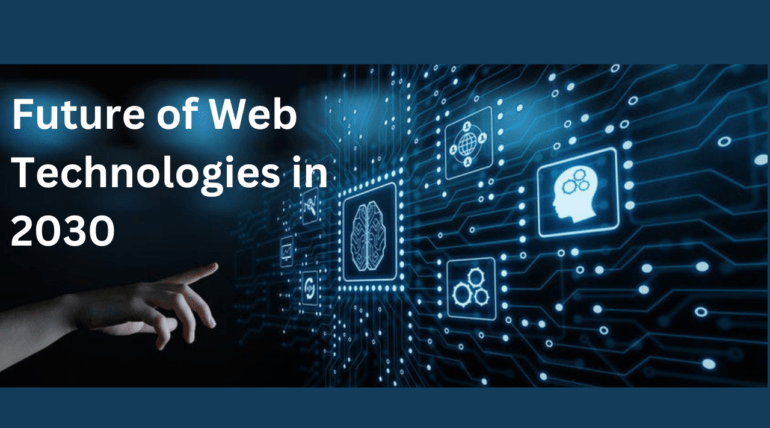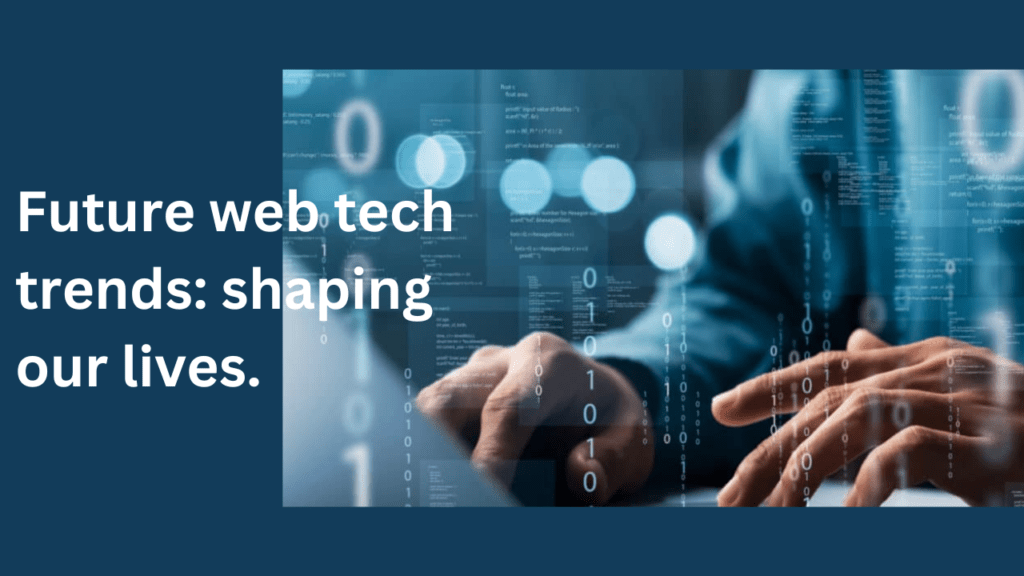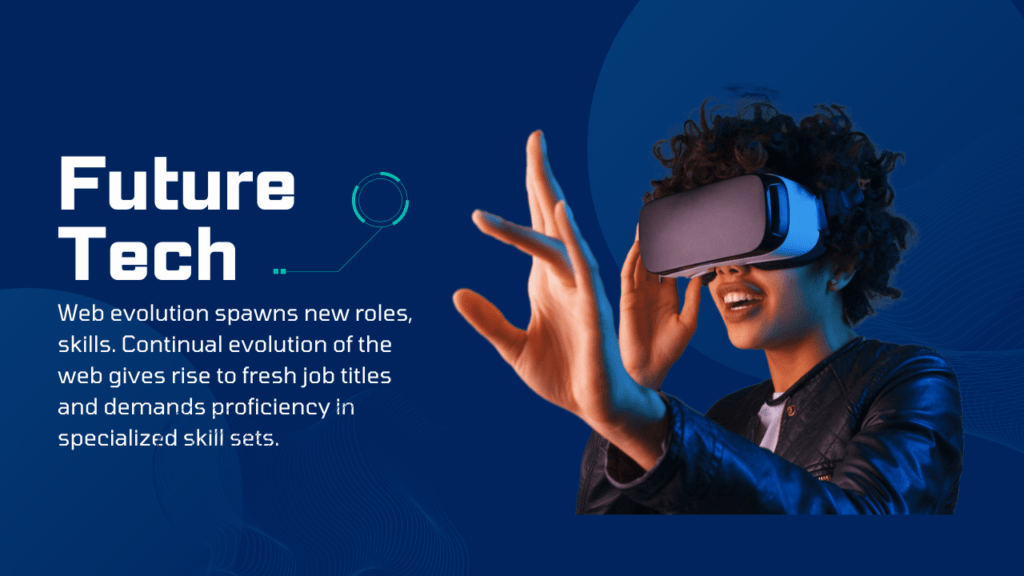
The evolution of web technologies can be broadly divided into several eras, each marked by distinct characteristics and shifts in how we use the internet:

Web 1.0 (1991-2004): The Read-Only Web
- Static, informational websites, mostly text and basic images.
- One-way communication – content creators published, users consumed.
Examples: Static online brochures, early search engines.
Web 2.0 (2004-2010): The Collaborative Web
- Dynamic websites with interactive features like blogs, forums, and video sharing.
- Two-way communication and collaboration between users.
Examples: Facebook, YouTube, Wikipedia, Twitter.
Web 3.0 (2010-present): The Semantic Web
- Semantic web aims to make data machine-readable and understandable.
Examples: Decentralized apps (dApps), cryptocurrencies, AI-powered chatbots, personalized content recommendations.
Based on current trends and technological advancements, we can anticipate some exciting applications of web technologies that will shape our lives:

- Immersive Experiences: Augmented reality (AR) and virtual reality (VR) will seamlessly blend the physical and digital worlds, creating immersive experiences for work, education, and entertainment. Imagine attending virtual concerts from your living room, or learning complex medical procedures through interactive AR simulations.
- AI-powered Personalization: Artificial intelligence (AI) will personalize our web experiences to an unprecedented level. AI-powered algorithms will anticipate our needs and preferences, recommending content, suggesting products, and even tailoring interfaces to our individual styles. Imagine a newsfeed that curates articles based on your specific interests, or a shopping website that suggests items you’ll love before you even search for them.
- Quantum Computing: While still in its early stages, quantum computing has the potential to revolutionize web technologies by enabling faster encryption, secure data transfer, and advanced computational tasks for complex applications. Imagine a world where hacking is virtually impossible, and scientific breakthroughs are made at lightning speed thanks to the power of quantum computing.
Web technologies like AI, AR/VR, and blockchain are at the forefront of technological advancements, pushing boundaries and influencing other fields. They’ll likely continue to be catalysts for further innovation and progress.
Essential Economic Engine: The web economy generates trillions of dollars globally and supports countless jobs. Its continued growth will be crucial for economic prosperity and job creation in 2030.
The evolving web landscape will create entirely new job roles and demand for professionals with specialized skills in areas like:

- Decentralized Technologies: Blockchain developers, dApp builders, security experts.
- Immersive Experiences: AR/VR developers, 3D designers, content creators.
- AI & Personalization: Data scientists, AI engineers, UX/UI designers, personalization specialists.
- Quantum Computing: Software engineers, quantum algorithm developers, security architects.
Staying relevant in the dynamic web tech field will require continuous learning and upskilling. Adaptability to new technologies and trends will be key for career success.
While technical skills are essential, soft skills like creativity, problem-solving, communication, and teamwork will remain highly valued for web tech professionals.
- Decentralization: Web 3.0 is expected to move towards a more decentralized, user-controlled web, which could disrupt traditional power structures and create new opportunities for innovation.
- Human-Machine Interaction: Seamless integration of technology into our lives, potentially through brain-computer interfaces or advanced wearables, will raise new ethical and social questions.
Overall, the future of web technologies in the coming years is brimming with opportunities. Those who embrace continuous learning, develop relevant skills, and adapt to the evolving landscape can thrive in this exciting and dynamic field. As technology continues to shape our lives, web technologies will be at the forefront, impacting everything from how we work and learn to how we connect and interact with the world around us.






